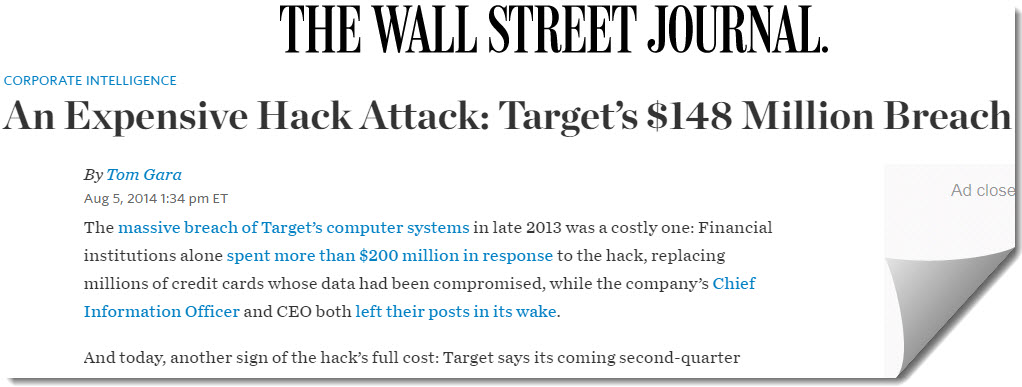Introducing Crypto Coins
“Money is a form of non-programmable Bitcoin that people used to use before they invented computers and cryptography.” Ryan X. Charles (20 Dec 2014)
Introduction to Crypto Coins
In an ecommerce environment, all customers are required to use legacy form of payments such as credit cards, bank or ATM debit cards, and alternatives such as PayPal. These legacy systems act as a good payment gateway for the initial purchase; however, it limits the customer from exploring other viable options, which may be more secure and private.
Customers need certainty. With the strong rise of hackers and constant nation-to-nation hacking campaigns, there isn’t an interconnected computer network that is truly secured and/or reliable.

Source: https://blogs.wsj.com/
The people are resilient and it is business as usual. However, there surely must be a better way to conduct ecommerce without the hassle of legacy payment systems such as credit cards.
During the midst of the financial crisis of 2008, an unknown person released Bitcoin on October 31, 2008. The cryptography community embraced this “Peer-to-Peer Electronic Cash System” and released it to the world in the winter of January 2009.
This new financial paradigm was introduced to the world as Bitcoin. We now have the power to ensure our financial security, privacy, and liberty of choice on a peer-to-peer payment network.
Bitcoin is powered by the people, thereby its true value exists in the community. With this new financial paradigm, there’s no single point of failure via hacking because it’s secured, private, and decentralized. This trust-less network leverages a distributed and opened ledger for transaction verification. By leveraging this ledger and a digital wallet, a customer can send crypto coins to a merchant for a desired product or service. Or send a crypto coin to a friend, family, or anyone else with a digital wallet. Plus, its market and value-driven, which makes this crypto coin tradable on those centralized crypto coin exchanges. In practice, a crypto coin’s value may vary over time.